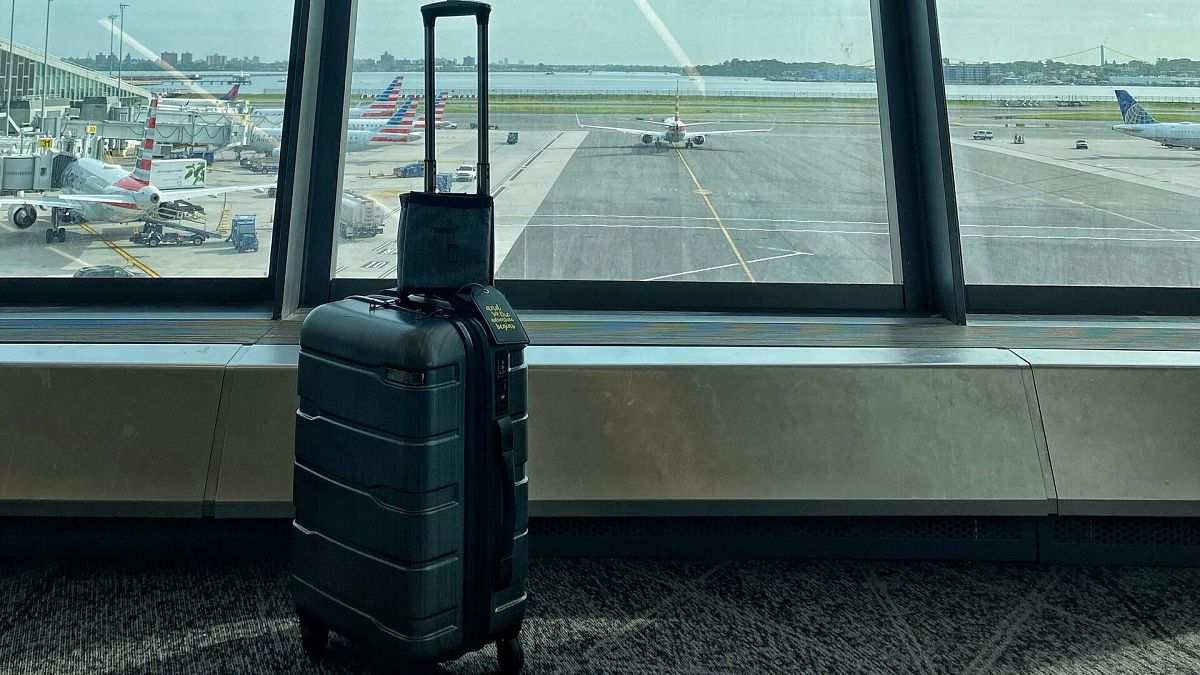Published on
ADVERTISEMENT
Trying to sneak an oversized bag onto a Ryanair flight is about to get more expensive.
The Irish budget carrier is raising the bonuses it pays staff who stop non-compliant luggage at boarding gates, boosting the incentive from €1.50 to €2.50 per bag from November and removing the current €80 monthly cap.
If caught, passengers face charges of up to €75 to check their bag into the hold.
Ryanair CEO Michael O’Leary defended the tougher stance, telling reporters at a press conference in London this week: “We want everybody to comply with the rules. If you comply with the rules, no issues.”
What’s changing for flyers?
Under Ryanair’s current policy, only one small item that fits under the seat in front, measuring no more than 40 x 30 x 20 centimetres, is included in basic fares. A second cabin bag, such as a small wheelie case, can be brought onboard for an additional fee.
Those who arrive at the gate with oversize bags and haven’t paid in advance face hefty charges, with fees reaching €75 to send a case to the cargo hold.
O’Leary admitted that only a fraction of travellers – around 200,000 a year, or 0.1 per cent of Ryanair’s 200 million passengers – are caught. But he argued that stricter enforcement is essential to keep flights punctual and base fares low.
“I am still mystified by the number of people with rucksacks who think they’re going to get through the gate and we won’t notice,” said O’Leary. “We will, and you will be paying for the rucksack. You’re not getting on if it doesn’t fit.”
The tougher approach is not unique to Ryanair. Rival airlines, including easyJet, have also used bonuses to encourage staff to enforce rules, with baggage handling company Swissport’s staff reportedly earning £1.20 (about €1.40) for every oversized bag they catch at the gate.
A wider industry shift
The decision also comes amid wider turbulence in the low-cost sector as airlines re-examine their models.
Extra charges – for everything from bag fees to seat selection – have long underpinned the ultra-cheap fares that budget airlines advertise, but rule changes are suddenly occurring at supersonic speed.
In the United States, Southwest Airlines has given up its open seating system after decades of marketing it as part of its identity. The budget airline also announced that plus-size travellers will soon be required to buy an extra seat, drawing criticism from campaigners but reflecting an industry-wide push to monetise every inch of cabin space.
In Europe, policymakers have been eyeing a different course.
In June, the EU advanced legislation that would guarantee passengers the right to bring hand luggage on board free of charge. If passed, the measure could undercut a revenue stream for budget carriers such as Ryanair and easyJet, but analysts also note that the rule change could lead airlines to raise airfares or find other ways to make up the lost revenue.
Ryanair, for one, shows no signs of softening its stance.
“I want our ground handling people to be catching people who are scamming the system,” O’Leary said. “And I make absolutely no apology for it whatsoever.”













